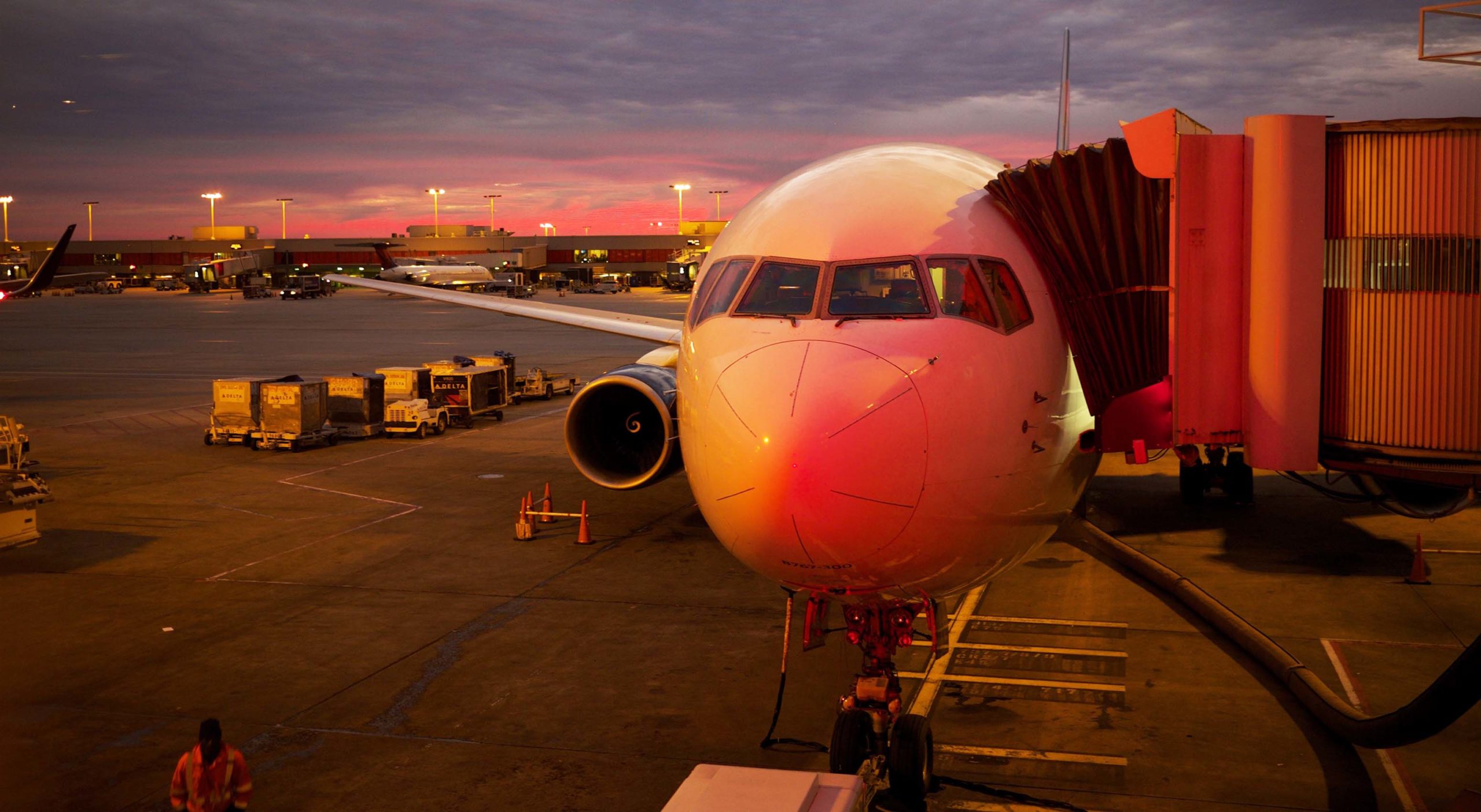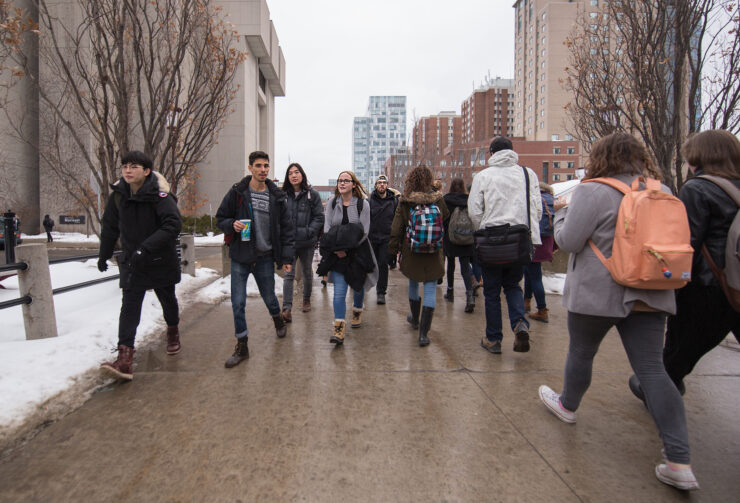Students received notice only weeks before departures that exchanges would be cancelled
The University of Ottawa’s last-minute decision to cancel outgoing international exchange programs for the winter term has generated criticism from students.
On Dec. 17, the U of O sent out an email informing students enrolled in the exchange program of the cancellation, just weeks before their scheduled departures.
A valuable experience
Ethan Lee, a student in his fifth year in civil engineering and computing technology, was supposed to go on an exchange to Singapore this semester.
“For me, I grew up in Canada, and I’m originally from Ottawa. So I’ve stayed in this environment for the past 20-plus years,” said Lee in an interview with the Fulcrum. “It’s definitely a big privilege to be able to grow up in Canadian societies. But I wanted to get, I guess, a bit of culture shock, a bit of experience trying to figure out things on my own.”
As a student in civil engineering, Singapore also offered Lee unique educational opportunities.
“[I was] trying to experience what a different society does in terms of engineering and academic background, especially in places like Singapore where it is very developed, it’s one of the biggest trade hubs in the world, especially in Asia and Southeast Asia. So they’re definitely advanced and had to do a lot of really unique city planning.”
The complexities of Singapore’s COVID-19 visa processes sheltered Lee somewhat from the adverse financial and organizational effects of the cancellation. Waiting for confirmation of his visa, he hadn’t booked a plane ticket or transferred his courses. But he was also hedging his expectations amid the worsening pandemic.
“I think probably I [thought it] was 50/50. I think deep down I had a feeling it was being cancelled.”
A University spokesperson insisted in a statement to the Fulcrum that students had been “consistently communicated [with about] this possibility.” But students insist that they felt blindsided by the decision.
“I felt like the carpet was ripped from under my feet. And I think that the exchange could have happened. I know that there was a lot of panic about what [Omicron] could be but if I was already in the U.K. they wouldn’t have had to call me back,” said Avia Amon, a fourth-year political science student who was supposed to spend this term in Scotland.
Hannah Charlesworth, a fourth-year student in the human kinetics program, was supposed to go on exchange first to Portugal, then to Spain. Her initial exchange was cancelled two years ago, and then interrupted again when Portuguese universities stopped offering English courses to discourage exchanges amid the rise of Omicron cases in that country. Her Spanish exchange was only confirmed in November, and cancelled two weeks later.
An out-of-province student, Charlesworth gave up her housing in the city and found accommodations in Spain before the cancellation. She has so far been unable to secure refunds for her visa or her exchange fees, and has moved back home for the last term of her degree.
“There were some [classes] that I had in-person originally that I wanted to take, but I can’t because I’m not going back to Ottawa for a couple of months and renting a place really short term, and bringing all my stuff out there. It just doesn’t really make sense,” she told the Fulcrum in an interview.
A muddled cancellation policy
The cancellations were complicated by the fact that the University opted to allow incoming students to go ahead with their scheduled exchanges.
“I was definitely a little discouraged and disappointed because it was a last-minute decision for sure. And it was limiting a lot of people for that experience, especially people who were on the way out of school. It’s kind of like the last hurrah to be able to have that chance. And one of the hardest pills to swallow is that the school is still allowing incoming exchanges,” said Lee.
A University of Ottawa spokesperson confirmed in an email to the Fulcrum that international exchange students have been allowed to study at the U of O this term, and will be doing so online until at least Jan. 31, just like the rest of the student body.
The decision to accommodate incoming exchange students infused the disappointment experienced by U of O students affected by the cancellation with a feeling of betrayal.
“It’s frustrating, because it’s like, why would you welcome students into this school? And not send any out when the university that I was going to was happy to accept students?” asked Charlesworth.
“I was three weeks out from flying, so it felt like I was betrayed a little bit by the school,” said Amon. “It’s a strong word, but it is what I felt.”
“They’re just caring about getting sued and looking bad,” added Amon. “If they were genuinely concerned about people traveling, they wouldn’t let people come.”
Communication breakdown
The U of O spokesperson wrote in a statement to the Fulcrum that the University is “acting alongside several other universities who heed to the Government of Canada’s advice to avoid non-essential travel.”
Several other schools across the country, including McGill University in Montreal, opted to allow their students to make the decision for themselves. Others, such as the University of Toronto, have also issued outright cancellations.
In a period of time when university students have already had to make significant sacrifices, students say this feels like an unnecessary one.
“There are universities that allowed exchanges to happen. They shouldn’t have left it so up in the air. They should have made a decision early on. To say yes, we’re going to do it. And no, we’re not going to do it,” said Charlesworth. “Especially being from out of province, it’s impossible to plan anything. Even my courses… I need to make sure that I’m getting, what I need to graduate. And also, I’m not that financially flexible.”
Amon added that while they are surely frustrated with the University, their frustration extends to the situation of the pandemic at large.
“I’m also just immensely frustrated with the pandemic for taking away another part of what I envisioned as my ideal twenties,” they added in a message to the Fulcrum.
For Amon, this term’s cancellation was the second time their exchange fell through. This time, the disappointment was much harder to take.
“The first time it was canceled, it was upsetting, but it was still six months out, so I wasn’t invested yet. It was understandable. The world was in chaos,” they said.
“This time around, maybe a week before I let myself start believing that it was actually happening because before then I still wasn’t letting myself get excited or look anything up about Scotland, because I didn’t think it was gonna happen. I let myself start getting excited about Scotland’s history. I’m a pretty measured person. I don’t usually get very emotional. But that was definitely very hard. I took a couple of weeks — luckily it was the break — just to recollect myself and come to terms with it. By planning my next term and by trying to figure out what’s happening with classes, and trying to be hopeful. For traveling, another time.”






